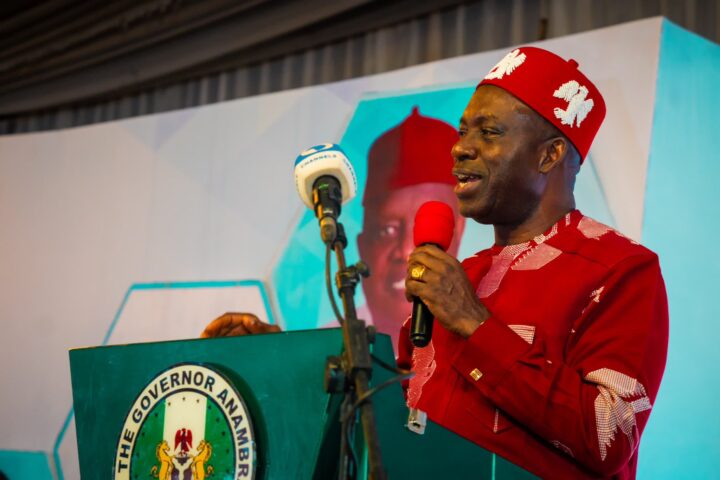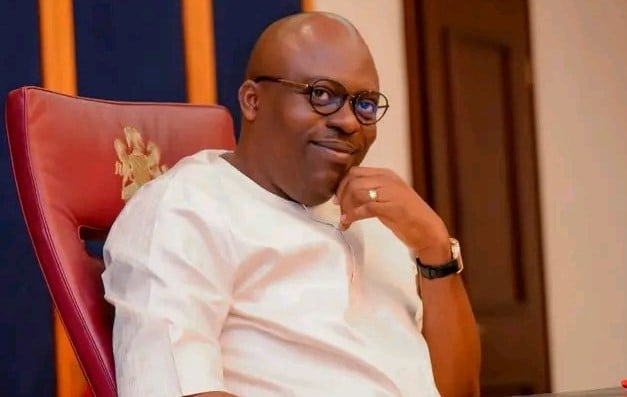A variant of the Igbo Apprenticeship System – a system which has produced notable billionaires in Nigeria – is aggressively being pursued in Anambra State. With the One-Youth-Two Skills programme initiated by Professor Chukwuma Soludo, the governor of Anambra State, Anambra State has setup a clear roadmap to support over 10,000 youths, annually, to start their own businesses.
The Igbo Apprenticeship System – an age long traditional business model – involves an experienced business owner, known as the ‘Oga’, taking on an apprentice for an agreed period of time. During this period, the apprentice, who in most cases works without pay and also does some domestic chores for the ‘Oga’, cuts his teeth in a trade and also gets useful contacts. The skills and contacts gotten during this period help the apprentice to start up a business afterwards.
This apprenticeship system, which has produced billionaires like Innocent Chukwuma, CEO of Innoson Vehicle Manufacturing Company Limited and Cosmas Maduka, CEO of Coscharis Motors, has been modified in the Governor Soludo’s One-Youth-Two Skills programme in order to make it more appealing to the present-day youths in Anambra State through the One-Youth-Two Skills programme.
Though there are plans to rejig the traditional Igbo Apprenticeship System, a variant of this system – the One-Youth-Two Skills programme — is aimed at equipping youths with marketable skills, entrepreneurial skills and business contacts. The kind of skills, mentorship and contacts that would make them employers of labour and business owners.
Advertisement
In the just concluded pilot phase of the One-Youth-Two Skills programme, 5,000 youths were trained in twenty various skills ranging from auto-mechanics, tailoring, catering, carpentry to electronics engineering. These 5,000 youths were empowered with a 2-billion-naira startup grant.
Apart from the 2-billion-naira grant given to the youths in this pilot phase, the administration has made provision for working capital funds in the Anambra State Small Business Agency (ASBA) for those who wish to scale up their enterprises. The administration knows that the potential millionaires and billionaires from these youths would come from those who are passionate about scaling up their businesses.
With the success of this pilot scheme, all is now set for the training and empowerment of 10,000 youths in 56 various skills in the next phase of the programme. This is outside the number of youths that are being trained under other initiatives by the Soludo-led administration.
Advertisement
A well- rounded curriculum, developed by Nnamdi Azikiwe University Business School, which focuses on managerial, administrative, soft, sales and marketing skills is used in training these potential entrepreneurs in this programme.
To be clear, this is not the first youth empowerment scheme in Nigeria. There have been many of them. But the One-Youth-Two Skills programme is unique. As the name suggests, a beneficiary is expected to be trained in at least two marketable skills. The programme focuses on producing mass entrepreneurs through apprenticeship programmes, entrepreneurial training, business financing and mentoring at the community level.
Yes, according to the U.S. Bureau of Labor Statistics (BLS), one in five businesses fail within the first year of operation. What has the administration put in place to protect these small businesses? Expectedly, the Soludo- led administration has put strategies to combat some of the reasons small businesses fail such as financing hurdles, inadequate management, poor business planning and even market mishaps.
On financing, apart from grants that would be given to these budding entrepreneurs to buy equipment, the administration has setup various modalities where these young entrepreneurs can access low interest loans from government institutions. Cooperatives – which create room for common facilities and common ownership – have also been created among beneficiaries in order for them to enjoy the economics of scale in their respective businesses.
On access to market and linkages, one of the beneficiaries from the pilot training programme – who was trained in tailoring – has already gotten a contract to supply school uniforms to some primary schools. And another who was trained in catering has gotten contracts for the supply of foods in two big events in the state this Christmas. The programme has in-built systems for linking beneficiaries to business opportunities.
Advertisement
A structured scheme has also been setup to provide mentoring to these young entrepreneurs. This scheme is supposed to help these young entrepreneurs navigate teething problems as they venture into the world of real business.
The beneficiaries of this programme are determined to be employers of labour. They want to succeed. They do not despise their days of little beginnings. They see people who have started like them and are now multi-millionaires around them in the south east. They have the Igbo can-do spirit!
Nwankwo is the Special Adviser to Soludo on Special Projects
Advertisement
Views expressed by contributors are strictly personal and not of TheCable.
Add a comment







